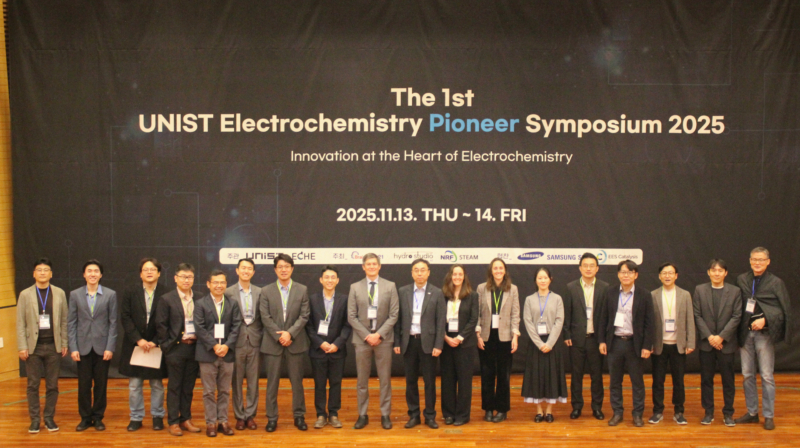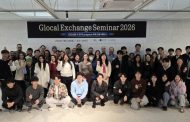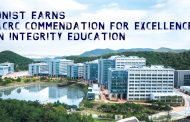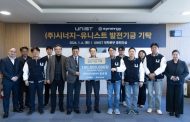UNIST successfully brought together world-renowned scientists, industry innovators, and emerging scholars for the ‘1st UNIST Electrochemistry Pioneer Symposium (UEPS 2025),’ held at UNIST from November 13 to 14, 2025. Under the theme “Innovation at the Heart of Electrochemistry,” the symposium highlighted transformative advances in battery science, hydrogen production, sustainable fuels, and AI-enabled materials discovery.
The two-day event marks a significant milestone for UNIST as it positions itself as a global nexus for next-generation electrochemical research.
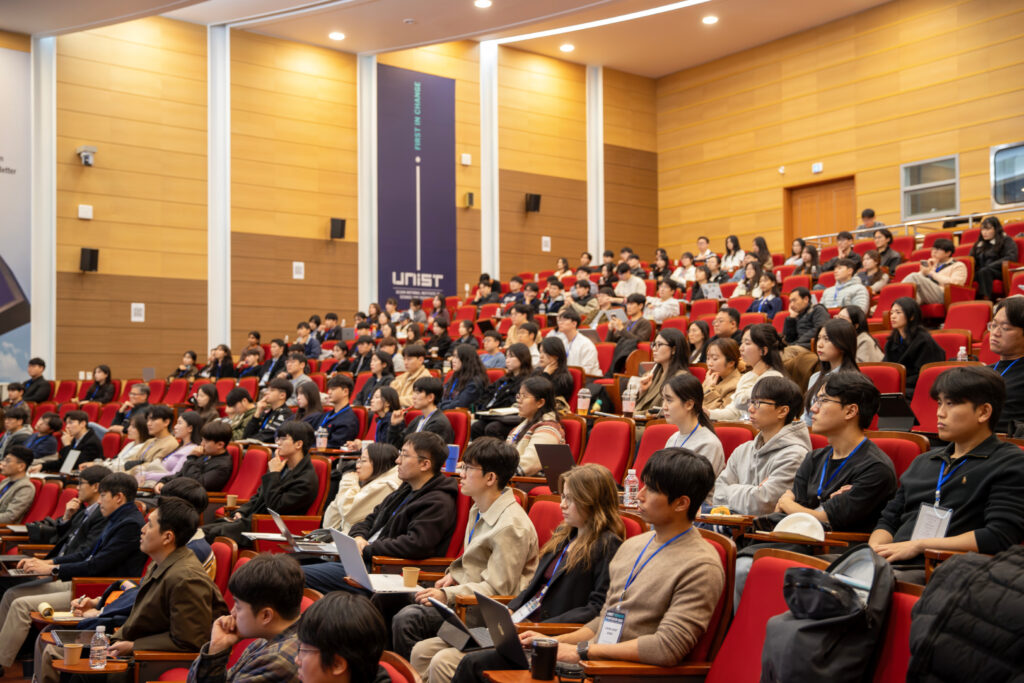
The ‘1st UNIST Electrochemistry Pioneer Symposium (UEPS 2025), which took place at UNIST from November 13-14, brought together world-renowned scientists, industry innovators, and emerging scholars.
Global Thought Leaders Redefine the Future of Electrochemical Innovation
The symposium opened with powerful keynote lectures from two widely respected figured in the field: Professor Yi Cui of Stanford University and Director Thomas Jaramillo of the SUNCAT Center for Interface Science and Catalysis at Stanford University.
Director Jaramillo, a leading figure in electrocatalysis, delivered a keynote titled “Understanding Interfaces for the Sustainable Production of Fuels and Chemicals.” His lecture addressed the critical role of interfacial science in enabling sustainable pathways for clean fuels and chemical production. Professor Cui, a world authority in battery science and the symposium’s featured international speaker, presented the keynote “Reinventing Batteries for a Sustainable Future.” His talk focused on the pressing need for next-generation battery technologies to support global sustainability goals.
Together, their keynote lectures set the stage for dynamic discussions across the symposium, emphasizing the growing convergence of electrochemistry with materials science, device engineering, and emerging AI-driven approaches.
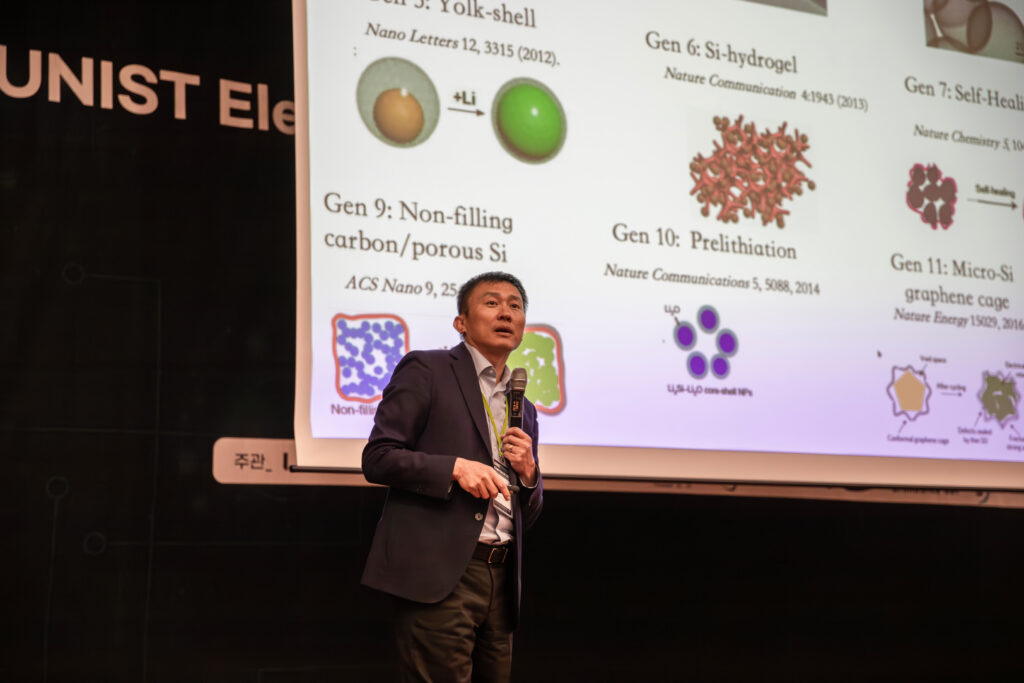
Professor Yi Cui of Stanford University presented the keynote “Reinventing Batteries for a Sustainable Future.”
Scientific Sessions Spotlight Major Advances Across the Field
Across six themed sessions, distinguished experts led in-depth discussions on next-generation energy technologies.
Day 1 featured talks by leading scholars, including Yi Cui, Kelsey Hatzell (Princeton University), and Yuzhang Li (University of California Los Angeles), who explored mechanisms governing electrochemical reactions at interfaces. Presentations covered advancements in catalyst design, battery interphase engineering, and solid-state electrochemistry.
Day 2 focused on the growing role of AI in materials development and manufacturing. Speakers Austin Sendek (CEO of Aionics Inc. & Stanford University) and Yijin Liu (University of Texas at Austin) highlighted how AI, machine learning, and advanced imaging are revolutionizing materials discovery, automating battery design, and enabling predictive electrochemistry.
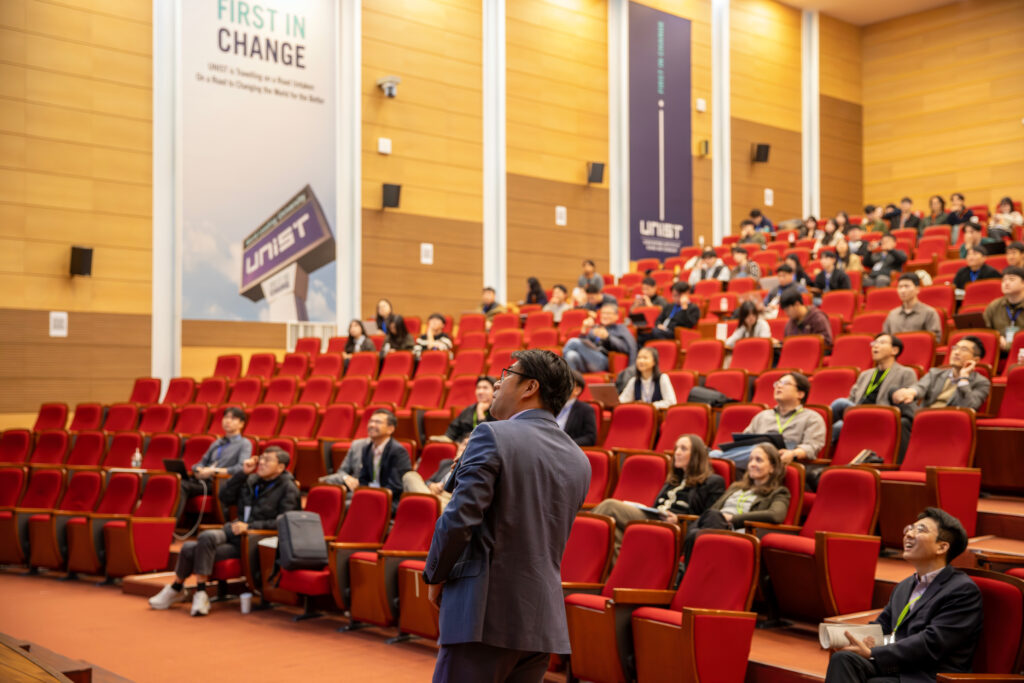
Dr. Yijin Liu from the University of Texas at Austin presented the keynote “Computer Vision for Understanding Strain Dynamics and Chemo-mechanical Degradation in Batteries.”
Additional experts including Ping Liu (University of California San Diego) and Kelsey Hatzell, shared innovations in sulfur-based solid-state batteries and advanced diagnostic X-ray imaging capabilities aimed at addressing critical barriers to commercialization. The final session featured highly anticipated contributions from Huolin Xin (University of California Irvine) and Marta Hatzell (Georgia Institute of Technology), who presented pioneering atomic-level studies revealing fundamental mechanisms behind fast charging and carbon conversion—offering practical pathways toward carbon-neutral technologies.
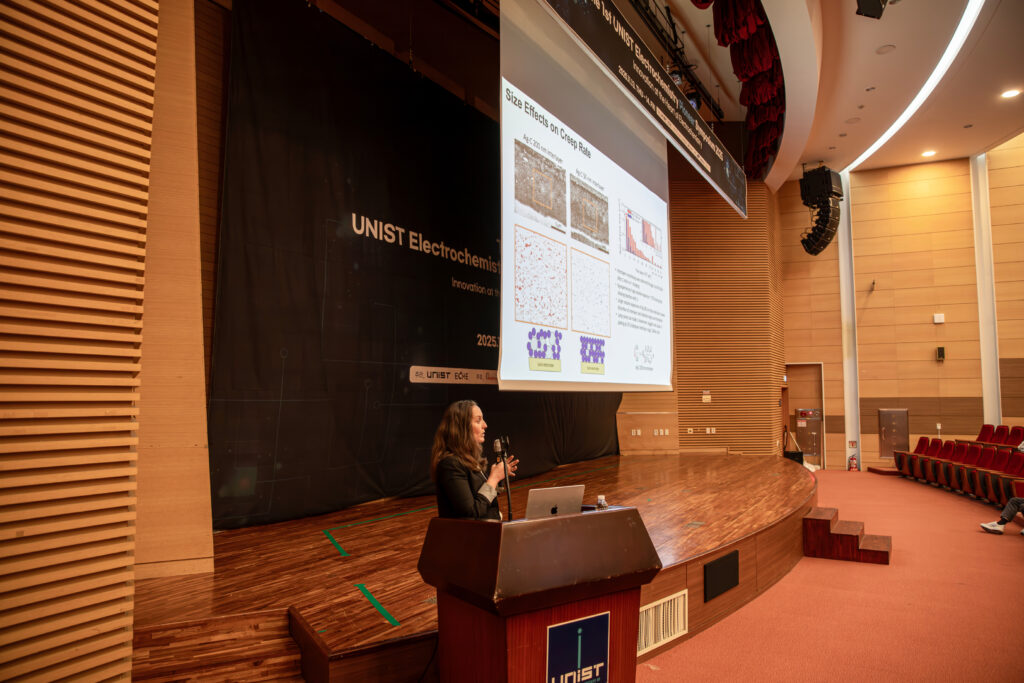
Professor Kelsey Hatzell of Princeton University presented the keynote “Reactive Carbon Capture and Conversion: Pathway to Carbon-neutral Fuels and Chemicals.”
From Korea’s energy sector, Jaephil Cho—a leading expert in high-nickel cathode development, former UNIST Professor, and current CEO of SMLAB Co. Ltd.—discussed emerging trends in high-energy-density cathode materials. UNIST faculty—including Hyun-Wook Lee, Ji-Wook Jang, Youngkook Kwon, Jungki Ryu, and Seung-Jae Shin—also showcased influential research spanning advanced electrocatalysis, photoelectrochemical systems, and computational electrochemistry.
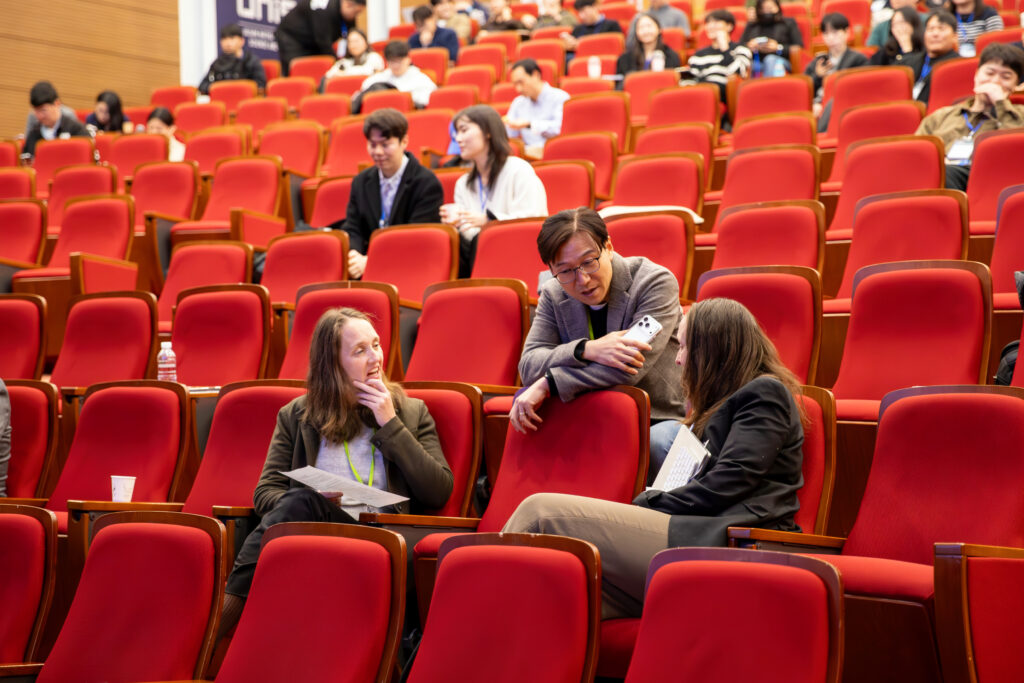
Professor Youngkook Kwon (UNIST), seated at the center, engages in discussion with Professor Kelsey Hatzell (Princeton University) and Professor Marta Hatzell (Georgia Institute of Technology) during a break at UEPS 2025.
A New Global Platform for Energy Innovation
Professor Hyun-Wook Lee, Chair of the Organizing Committee for UEPS 2025, emphasized the long-term vision of the symposium. “Electrochemistry is central to achieving carbon neutrality and enabling a sustainable energy future,” said Professor Lee. “By convening world leaders here at UNIST, we are accelerating scientific exchange, strengthening industry–academia collaboration, and shaping the next generation of technological breakthroughs.”
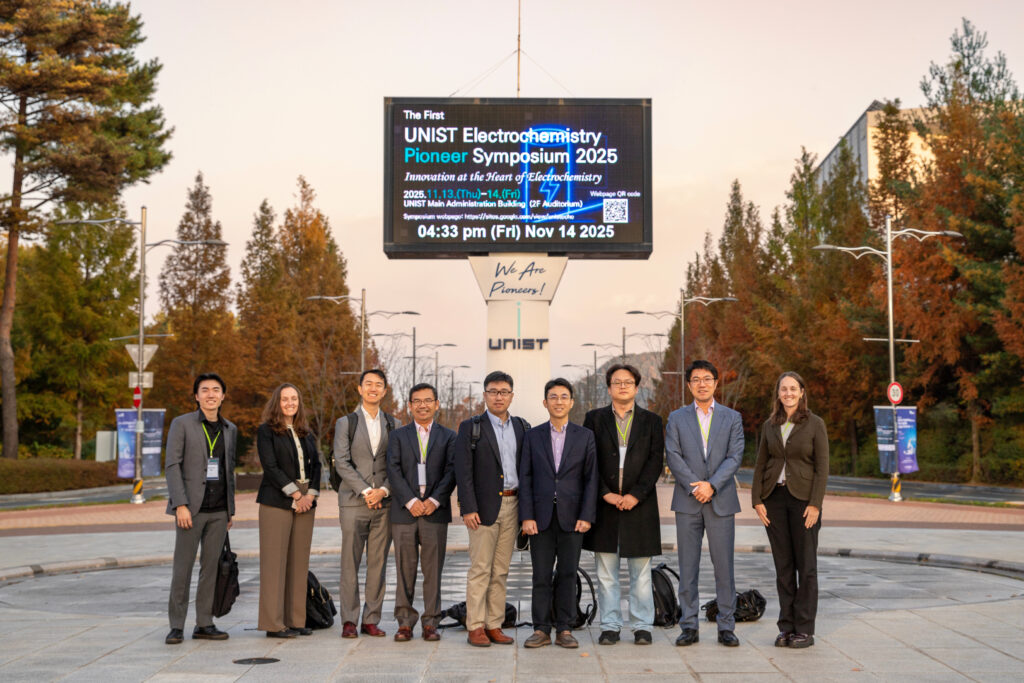
The UEPS 2025 organizing committee, program chairs, and invited speakers gather for a commemorative photo following the conclusion of the symposium.
With its successful inaugural event, UNIST is set to develop the UNIST Electrochemistry Pioneer Symposium into a premier international gathering—solidifying Ulsan’s position as a key global hub for battery research, electrochemical technologies, and AI-driven materials innovation.


